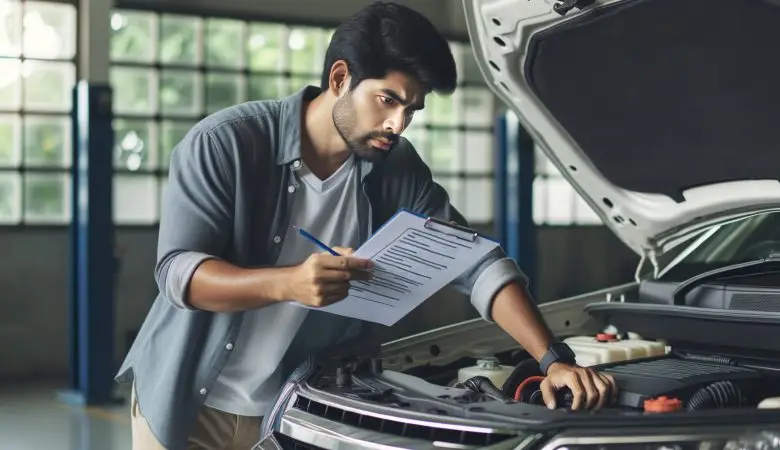Your guide: Do you need full coverage on a financed car?
The two main parts of full coverage insurance are liability coverage and comprehensive/collision coverage. If you are at fault in an accident, liability insurance will protect you from lawsuits that say you hurt other people or damaged their property. All-around and collision coverages, on the other hand, pay for damage to your car caused by things like theft, vandalism, accidents, and natural disasters. So, if you’ve ever wondered, “Do you need full coverage on a financed car?” you’re in luck. Keep reading to learn more.
Also read: Jio Financial Targets ₹350 as Allianz Insurance Partnership Underway

Why Think About Complete Coverage?
Even though it may not be required by law in most states, having full coverage can give you a lot of peace of mind, especially if you have a loan on your car. Having full coverage can keep you from having to pay a lot of money out of your pocket if your car is stolen or breaks down. If you still owe money on your car or if it’s worth a lot, this is very important.
Comparing Legal and Lender Requirements
The Requirements for State Insurance
Only in some states is it the law for drivers to have liability insurance. In other words, you might not be required by law to have full coverage. However, it’s important to remember that following state laws is only one part of the situation.
Terms and Conditions for Lender Insurance
However, most lenders have their own rules that they follow. To protect their investment, lenders often require borrowers to keep their financed cars fully insured. In other words, your lender will probably need it even if the law in your state doesn’t. If you don’t meet this requirement, your lender may have to buy insurance for you, which costs more.
How long the liability is good for?
How Much Time Do You Need Complete Coverage?
When you finance a car, the length of your loan usually tells you how long you have to keep your full coverage. For example, if you get a loan with a 36-month term, the lender will probably demand that you keep full coverage for the whole loan. To fully understand the insurance requirements, you must first look over your financing plan.

Factors Affecting the Length of Coverage
There are a few things that affect how long you need to keep full coverage:
- Loan Term: Longer loan terms are usually linked to longer periods of needed full coverage.
- Value of the Vehicle: More valuable Cars may need full coverage for a longer time.
- Down Payment: If you make a bigger down payment, you may be able to get full coverage faster.
The Process Of Financing
What Are Required to Submit a Financing Application?
There are a few things you will need to get ready if you want to finance a used car. This is made up of:
- A valid driver’s license
- Proof that you have current car insurance
- Providing proof of your finances, like your last two pay stubs
- If it applies, any current paperwork about the vehicle
- This information will help your lender figure out how much of a loan they can give you and how much interest they will charge you.
Making Contact with Lenders on Your Own
Once all of your paperwork is ready, you can talk to your finance team. They will talk to lenders on your behalf. They will talk to you about the insurance requirements for your loan and work out terms that work with your budget.
Factors Affecting the Need for Insurance
The Impact on Credit Scores
Your credit score can have a big effect on how much you can borrow and, in turn, how much insurance you need. If your credit score goes up and you can get better loan terms, the amount of time you need to keep full coverage may change.
Considerations for the Down Payment
How much you can put down as a down payment is another important thing to think about. If you put down more money, the loan amount will go down, which means you might be able to drop full coverage sooner than someone with less of a down payment.
Assessing Your Choices: Is Complete Coverage Valuable?
While full coverage might cost more, it could save you a lot of money in case of an accident or theft. It is very important to weigh the possible benefits against the costs. This cost is worth it for many people because they feel safe knowing they are fully protected.
Examining other options
If you think that full coverage is too expensive, talk to your insurance company about what other options you have. Some companies may offer custom plans that cover enough without going over budget.
How to Get Around the Used Car Market: A Simplified Guide to Buying a Car
Getting a loan to buy a used car can be scary, but working with an experienced finance team can make it easier. They can help you at every step and make sure you understand the financial and insurance parts.
Also read: What Happens if You Wreck Someone Else’s Car Without Insurance?

Making Use of Internet Resources
More and more car lots now have online tools, like calculators, that can help you figure out your monthly payments and how much the whole process will cost. These tips could help you decide what to do.
Conclusion
To sum up, many lenders demand full coverage insurance on financed cars to protect their investments, even though most states don’t. It is very important to understand the fine print of your loan agreement and how your insurance choices will affect you. Ultimately, whether or not full coverage is the best choice for you will depend on your finances, how much your car is worth, and how comfortable you are with risk.






